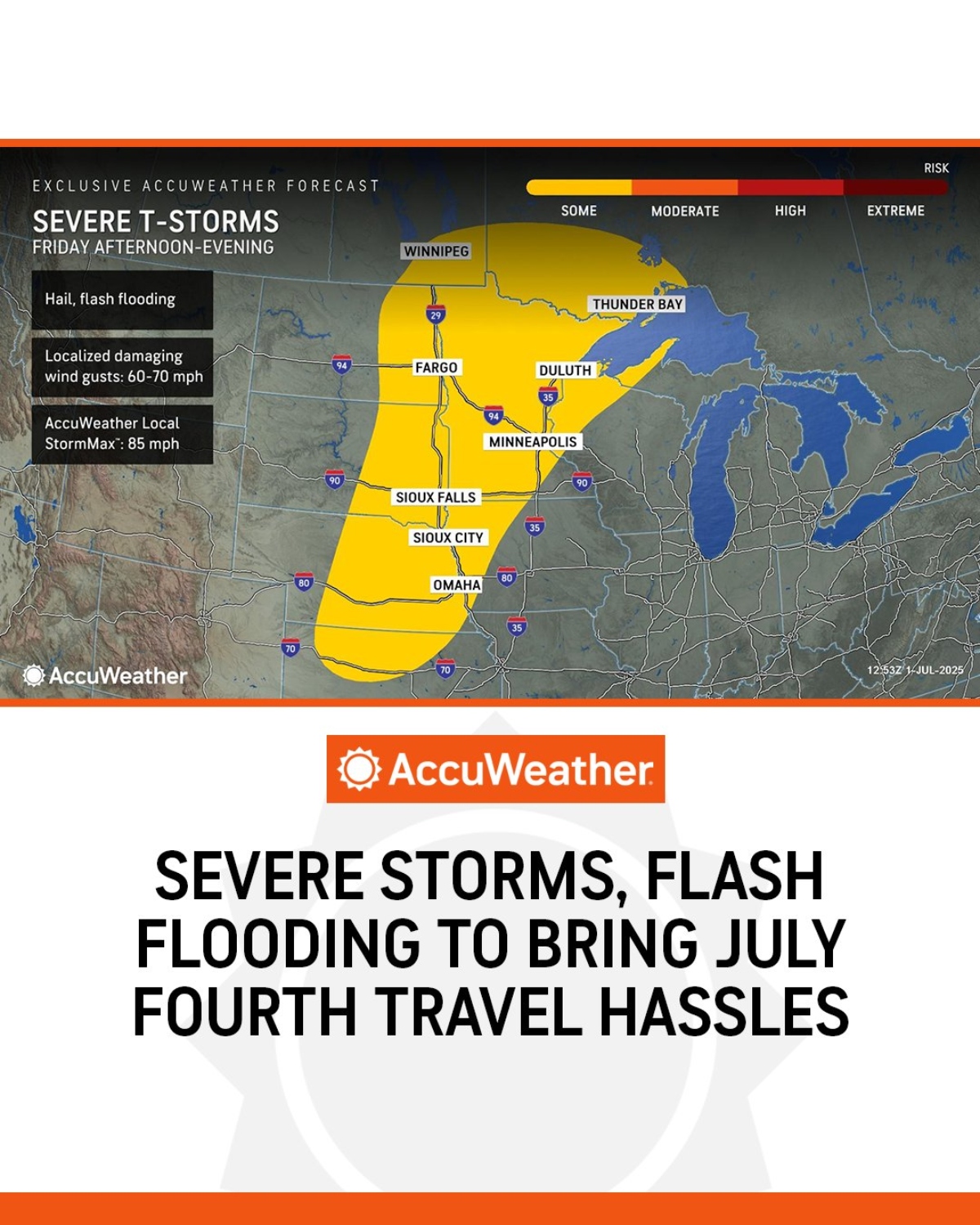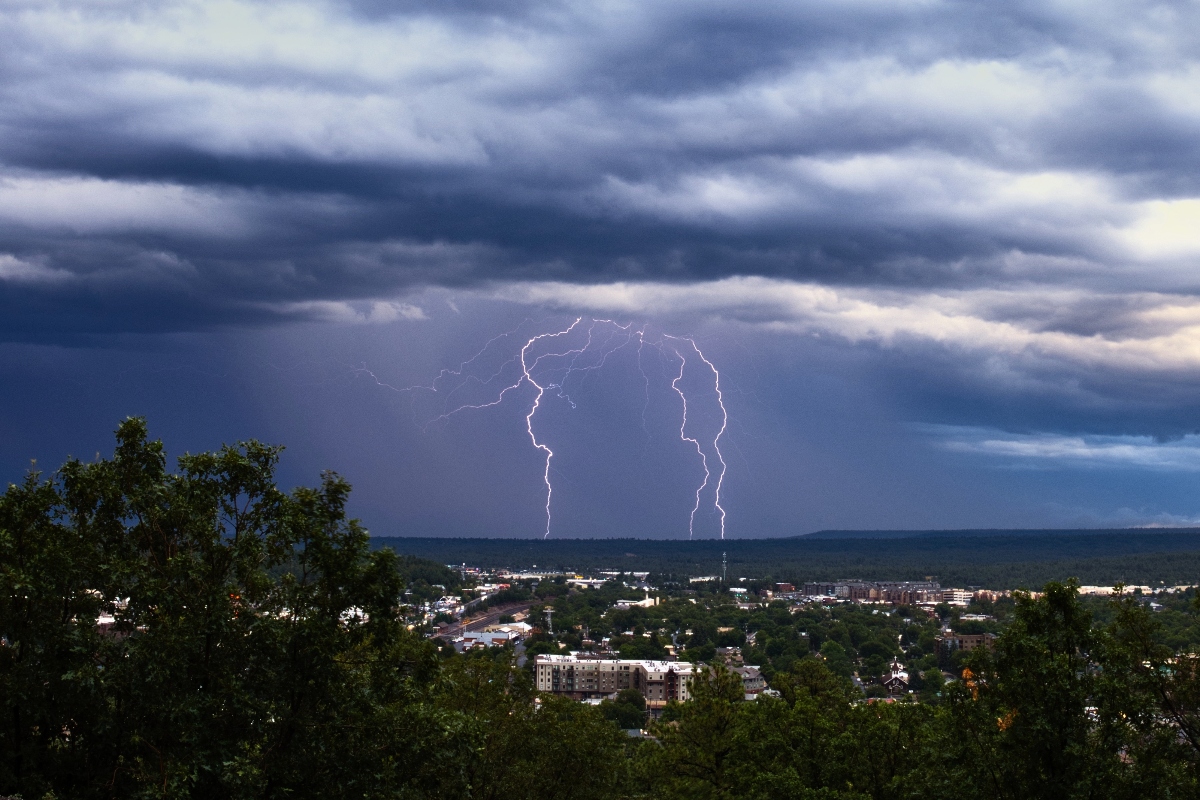Independence Day celebrations could be seriously affected by extreme weather conditions.
According to AccuWeather meteorologists, severe weather, or thunderstorms, will continue to hit several regions of the country throughout the week, especially the Northeast, Atlantic Coast, Midwest and Southwest, just as millions of people prepare to travel or attend outdoor events for the Fourth of July.
Air delays and highway chaos

The storms that hit Monday and Tuesday, threatening 4th of July celebrations, have already caused massive flight cancellations.
More than 1,600 flights were suspended nationwide.
Major airports affected included Boston, New York, Philadelphia, Washington D.C. and Charlotte, all located along the I-95 corridor.
The rain and storm pattern continues Wednesday, with heavy rain, high winds and flash flood risk from southern New Jersey to northern Florida.
These conditions threaten to continue to cause disruptions on key air routes and highways, such as Interstates I-81 and I-95.
Instability in the Midwest

More than 1,600 flights were canceled nationwide
Meanwhile, a new round of severe storms will affect the Midwest.
Especially in Minnesota, Iowa, Michigan and Ontario, where hail and dangerous wind gusts are expected.
By Thursday, the northeast will again be at risk, although with lower humidity.
This reduces the likelihood of flooding, but does not eliminate the danger of local power outages and downed branches from high winds.
Also of concern

In the Southwest, the North American monsoon is already bringing heavy rains and daily thunderstorms to Arizona, New Mexico and parts of Nevada and California.
These rains can produce flash floods in dry areas, known as “arroyos” or “washes”, as well as dangerous dust storms for drivers.
Tropical moisture carried by the seasonal change in winds increases the likelihood of sudden heavy rainfall, even if storms develop miles away.
What to do if you have plans for the 4th of July?
Constantly check local weather conditions.
If you plan to fly, check the status of your flight in advance.
Avoid driving in flooded areas or areas with poor visibility.
Secure outdoor objects that may blow away in the wind.
Be prepared for possible power outages and changes of plans.
For more information, visit QuéOnnda.com.























